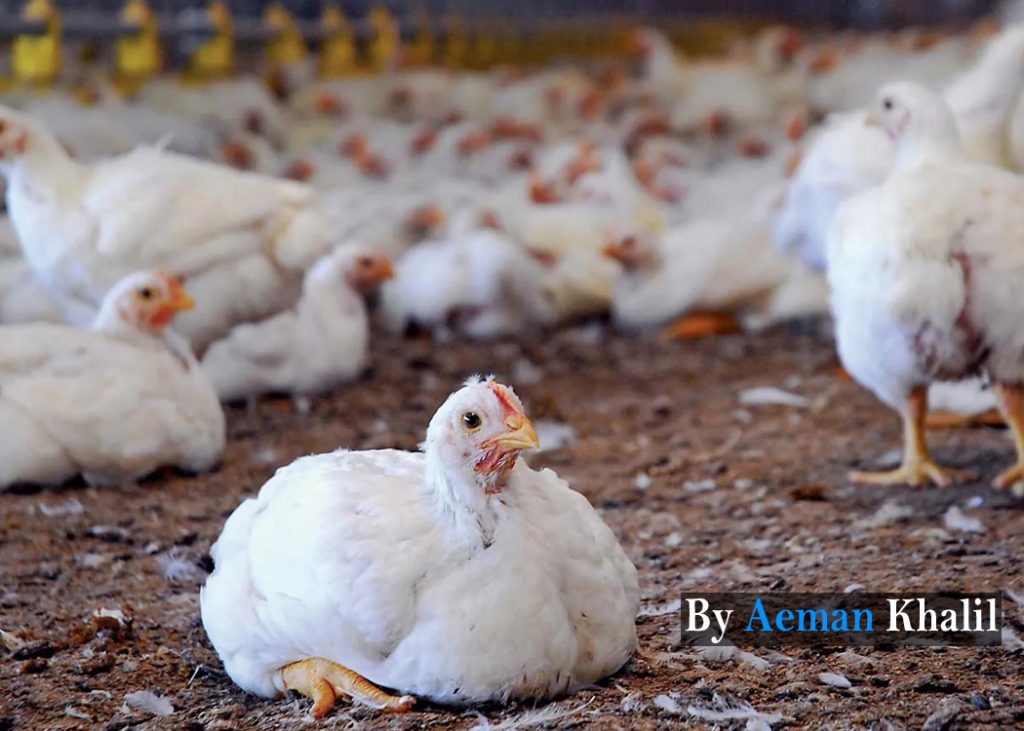
By Aeman Khalil
As a cornerstone of global food supply, the poultry industry must meet rising demand for protein by adopting innovative strategies to enhance production while prioritising safety, animal welfare, and environmental sustainability.
Strengthening biosecurity measures is crucial for the protection of poultry production, as these measures help prevent the spread of diseases within flocks.
Farmers can minimise the risk of disease transmission by restricting access to poultry houses, allowing only essential personnel to enter under strict sanitation protocols, such as disinfecting footwear and equipment. Regular health checks, including routine assessments and vaccinations, are essential for early detection of potential issues and reducing the likelihood of disease outbreaks. Effective waste management, through methods like composting or converting waste into bioenergy, is also important for mitigating environmental impact.
Nutritional management plays a significant role in enhancing poultry health and production efficiency. By customising diets to meet the specific nutritional needs of different poultry species, farmers can ensure optimal growth and health.
High-quality ingredients and additives that support gut health and boost immunity are key components of these tailored diets. Incorporating natural additives, such as probiotics and prebiotics, can further improve digestion and nutrient absorption, leading to healthier birds and better feed conversion rates.
Technology-driven monitoring of individual bird feed intake enables the optimisation of feeding strategies, reducing waste and ensuring that each bird receives adequate nutrients.
Technological advancements are reshaping poultry production, offering safer and more efficient approaches. The use of Internet of Things (IoT) devices to monitor environmental conditions, such as temperature and humidity within poultry houses, helps maintain optimal living conditions, thereby reducing stress and the risk of disease.
Advanced analytics enable farmers to make informed decisions by analysing trends in growth rates, feed efficiency, and health metrics. Automation of tasks like feeding, watering, and monitoring not only reduces labour costs but also minimises human error, ensuring consistent care for the birds.
Sustainability is becoming increasingly important in the poultry industry, as consumers demand ethically produced food. Farmers can adopt eco-friendly practices by providing outdoor access for poultry, allowing them to engage in natural behaviours, which often results in healthier birds and better-quality meat and eggs.
Integrating renewable energy sources, such as solar panels or wind turbines, can decrease dependence on fossil fuels and lower greenhouse gas emissions. Water conservation efforts, including efficient watering systems and wastewater recycling, help preserve this vital resource while ensuring the birds’ health and well-being.
As the poultry industry continues to evolve to meet growing consumer demand, it is essential for producers to adopt safe and innovative solutions.
By strengthening biosecurity measures, utilising technological advancements, and embracing sustainable practices, poultry producers can enhance productivity while prioritising safety and animal welfare.
Investing in these strategies will contribute to a healthier future for both consumers and the poultry sector, driving initiatives that promote safe, sustainable, and efficient poultry production for generations to come.





